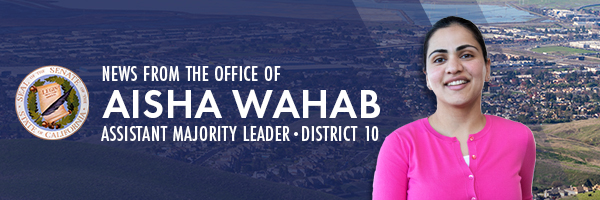
Bill to consolidate Bay Area transit agencies sputters. Here’s what happens next
San Francisco Chronicle | Ricardo Cano
A Bay Area legislator on Tuesday withdrew a bill aiming to merge the region’s 27 transit agencies, though the effort to pursue some form of consolidation remains alive.
Senate Bill 397 by Sen. Aisha Wahab, D-Fremont, faced opposition from the region’s transit agencies and stalled less than a week after it was introduced. If passed, the bill would have directed the California State Transportation Agency to come up with a plan to “consolidate all transit agencies” in the nine-county Bay Area.
Wahab did not give a reason for withdrawing the bill, which had a committee hearing scheduled Tuesday, but signaled that she has not abandoned the effort.
“This is the first effort ever to consolidate the 27 agencies in the nine Bay Area counties. I’m excited that there is a groundswell of support to consolidate,” Wahab said in a statement. “There is no dodging this conversation any further, and I’m working collaboratively with stakeholders and prioritizing residents.”
While SB397 faced long odds, its introduction reflects growing conversations among the region’s elected officials over whether to consolidate some of the Bay Area’s more than two dozen transit agencies as they struggle to recover their 2019 ridership.
The consolidation debate, long a hot topic in the Bay Area, resurfaced in recent months as BART, the San Francisco Municipal Transportation Agency and other large agencies face swelling budget deficits starting in 2026. Those deficits will begin after the agencies run out of the federal and state subsidies that have propped up transit service since the pandemic.
Though it doesn’t have a single prescribed definition, transit consolidation could mean merging together agencies — such as BART and Caltrain or all the bus transit agencies within a single county — or consolidating departments or functions, like scheduling, across multiple agencies.
The concept has long been popular among transit riders who say consolidation could make transit more appealing to ride because it could lead to better coordinated schedules, fares and wayfinding.
Several commissioners at the Metropolitan Transportation Commission, the Bay Area’s transportation agency, voiced support for agency consolidation in December as they discussed putting a tax measure for transit operations on the 2026 ballot. However, they also acknowledged that the region wouldn’t be able to implement such monumental changes before the November 2026 election. Some MTC commissioners and transit agencies said they opposed merging transit agencies.
The MTC plans to sponsor legislation this session that would allow the commission to ask Bay Area voters to pass a 2026 transit tax measure.
The proposed legislation would also give the commission more power to force Bay Area transit agencies to work together to streamline fares, schedules and wayfinding. Agencies have been slow to follow through on post-pandemic pledges to make transit more reliable and efficient for riders because the Bay Area lacks a single decision-maker over sensitive issues, such as fare coordination.
The MTC’s proposal, set to be unveiled this month, would appoint the commission as the “regional transit network manager” for the Bay Area — a structure that supporters of the plan say would yield benefits akin to transit consolidation, even if the agencies, themselves, remain independent.